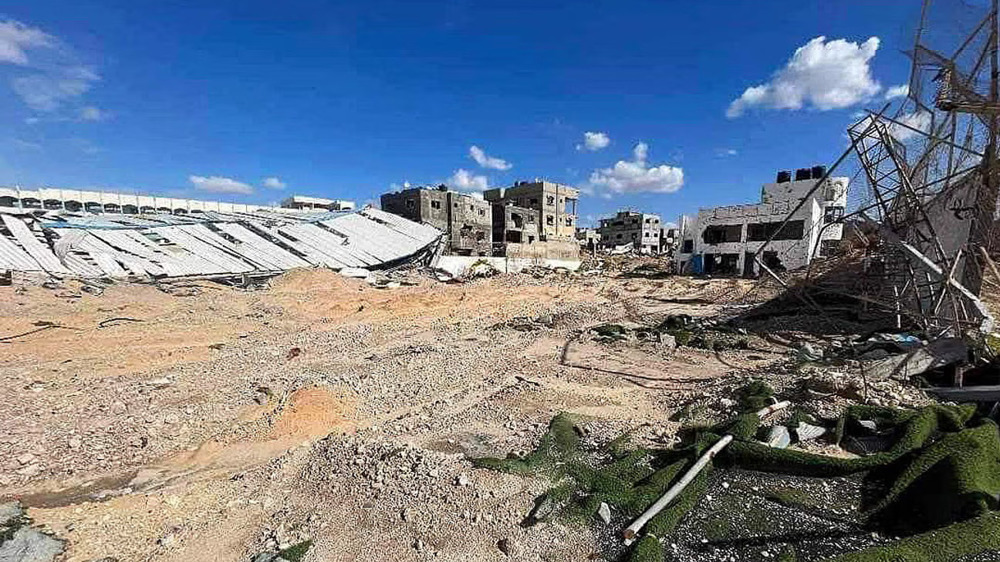Israel suspends cooperation with UNESCO after al-Quds draft
The Israeli regime has suspended its cooperation with UNESCO a day after the UN cultural agency denounced the regime over its violations in Jerusalem al-Quds.
On Thursday, UNESCO adopted a draft resolution that strongly condemned "the escalating Israeli aggression and illegal measures against… the freedom of worship and Muslims’ access to their holy site al-Aqsa Mosque/al-Haram al-Sharif," (also known as the Temple Mount) compound in the occupied Old City of Jerusalem al-Quds.
UNESCO called on "Israel, the occupying power, to respect the historic status quo and to immediately stop these measures.”
The UN body also condemned the “continuous storming of Haram al-Sharif by the Israeli right-wing extremists and uniformed forces.”
The draft resolution, which aimed to "safeguard the Palestinian cultural heritage and the distinctive character of east Jerusalem," has infuriated the Israeli officials.
"I have notified the Israel National Commission for UNESCO to suspend all professional activities with the international organization," Israeli regime Education Minister Naftali Bennett wrote in a letter sent to UNESCO Director General Irina Bokova.
A top official with the Paris-based UN body responded to the Israeli regime’s suspension of ties. Michael Worbs, who chairs UNESCO's executive board, said he hoped a final vote set for October 18 on two resolutions related to East Jerusalem al-Quds would be put off by members until a compromise could be worked out. Both draft resolutions refer to "Occupied Palestine" and the need to "safeguard the Palestinian cultural heritage and the distinctive character of east Jerusalem."
Twenty-four countries, including Algeria, Brazil, China, Iran, Russia and South Africa, voted in favor of the UNESCO resolution on Thursday, while the United States, Britain, Germany, the Netherlands, Lithuania and Estonia opposed it.
A total of 26 countries, including Albania, Argentina, France, Greece, Japan, South Korea, Spain and Sweden abstained from the vote. Serbia and Turkmenistan were absent.
The occupied territories have already been the scene of increased tensions ever since Israeli forces imposed restrictions on the entry of Palestinian worshipers into the al-Aqsa Mosque compound in East Jerusalem al-Quds in August 2015.
Nearly 250 Palestinians have lost their lives at the hands of Israeli forces since the beginning of last October.

Israeli regime forces occupied east Jerusalem al-Quds during the 1967 war and later annexed it, declaring the whole city its indivisible capital despite outcry by the international community.
For Palestinians, east Jerusalem al-Quds is the capital of their promised future state.
Al-Aqsa Mosque is the third holiest site in Islam after Masjid al-Haram in Mecca and Masjid al-Nabawi in Medina.
Palestine gained membership in UNESCO in 2011 with 107 votes in favor, 14 against and 52 abstentions. The United States, Canada and Germany voted against Palestinian membership. Brazil, Russia, China, India, South Africa and France voted in favor. Britain abstained. Shortly after Palestine’s admittance in the organization tasked with safeguarding human’s cultural heritage, Israel and the United States both suspended their funding to UNESCO. Both have lost their voting rights as a result.
'Israel booby-trapped walkie-talkies, pagers years before Lebanon blasts'
Gaza Health Ministry calls for urgent intl. help to protect hospitals amid Israeli genocide
Stakes involved in Iran’s partnership with Eurasian Union
VIDEO | Press TV's news headlines
Iran says ‘ready’ to reopen embassy in Syria, holds talks with Damascus
VIDEO | 12 people killed in ammunition factory blast in northwest Turkey
Iraq’s PMU masses resistance forces on border with Syria amid mounting concerns
Israel killed over 700 athletes in Gaza since October 2023















 This makes it easy to access the Press TV website
This makes it easy to access the Press TV website